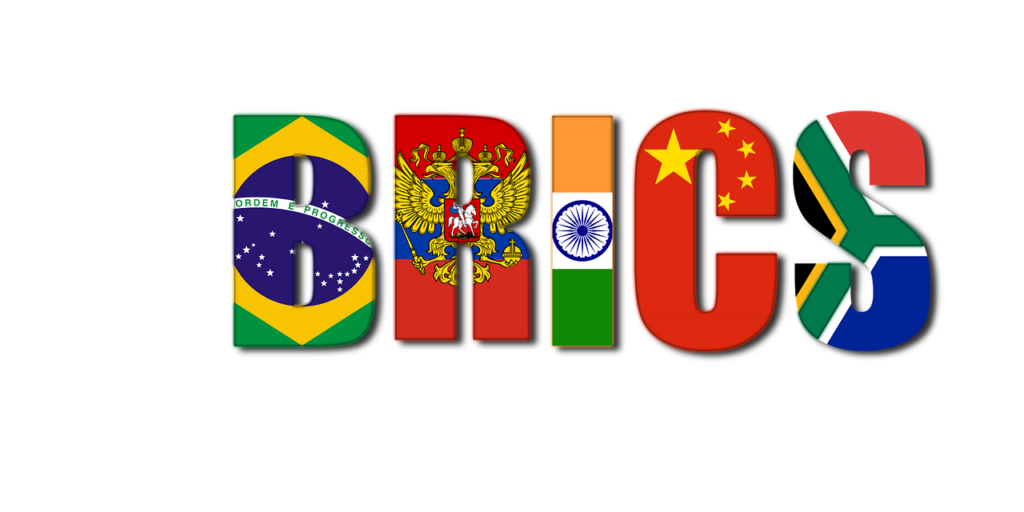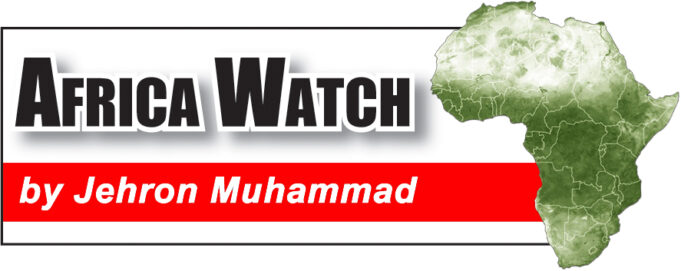On the eve of the upcoming BRICS Summit to be held in August in South Africa, a U.S.-initiated trade war with China over the future of semiconductors has escalated.
BRICS is an acronym for the world economies of Brazil, Russia, India, China and South Africa. Beijing hit back by playing a trump card: It imposed export controls on two strategic raw materials, gallium and germanium. Both are critical to the global chipmaking industry.
According to reuters.com, China’s export controls on metals used in semiconductors are “just a start,” an influential Chinese trade policy adviser said recently, as China’s capital ramped up a tech fight with Washington days before the recent visit by U.S. Treasury Secretary Janet Yellen, which was preceded by a visit by Secretary of State Anthony Blinken.
“Shares in some Chinese metals companies rallied for a second session as investors bet that higher prices for gallium and germanium, which Beijing’s export restrictions target, could boost revenues,” the news service added.
The U.S., with its many military bases and being ranked number one in corporate production of military hardware, maintains its “superpower” status, as the Honorable Minister Louis Farrakhan of the Nation of Islam once said, by accessing the mineral resources of other countries.
China’s unexpected announcement of controls beginning in August on exports of some gallium and germanium products also used in electric vehicles (EVs) and fiber optic cables has sent Western companies scrambling to secure supplies and bumped up prices.

Thus, this writer surmises, some of the talking points to the Blinken and Yellen visits.
Hoang Thi is a senior fellow at the Institute for Southeast Asian Studies at The Yusof Ishak Institute in Singapore and co-coordinator of its regional strategic and political studies program.
“It was intriguing to hear a senior official from China—the world’s largest official creditor nation, the second-largest economy, the third-strongest military power, a permanent member of the UN Security Council and a technological and financial powerhouse that has overtaken the U.S. in many measures of national power—lament injustice in the international system,” she wrote in a recent article.
Note: China’s military lags far behind “regarding operational skills, military hardware,” and the U.S. has three times the military bases of all nations combined.
Her article was published on asia.nikkei.com with the headline: “China’s grievances with the West are heard by the Global South.” Hoang Thi claims that public opinion of the Global South (which includes Africa) about the West (which includes the U.S.) has “sour(ed)” and is “even hostile.” Beijing “is confident about finding many like-minded partners in the Global South to form broad coalitions to reshape the international system in accordance with its own values and interests,” she added.
Add to that the 1968 insightful remarks and prophetic warning of the Eternal Leader of the Nation of Islam, the Most Honorable Elijah Muhammad, to the Western powers and their antagonistic history of war-mongering behavior. Published in his weekly centerfold column, Mr. Muhammad wrote,
“The majority of the citizens of America (and the world) want some kind of peace and that peace is not foreseen in the movements of the government in Washington, unless the newly elected government (think the results of the upcoming presidential race) takes steps to assure the powers of Asia, who have been attacked and their peace upset to the degree of anger, that a continuation of this antagonistic anger will bring an early total fall and destruction of the powers of England and America over the Black and colored races of the earth.”
Mr. Muhammad added, “The old world (of Asia) will not bow to the West for peace. If peace is to be had, it will have to come from the West, who started the trouble that has put the nations of the earth in the present condition (without peace).”
Ms. Hoang Thi echoes Mr. Muhammad, but in addition, he warns China not to take advantage and engulf this escalating “South-South discourse …” by glossing “over the complexities of global interdependence and China’s own participation in the international system and world economy.”
What the Global South’s increased dissatisfaction will not tolerate is China exploiting the South-South cooperation and replicating a system built on the free market, Bretton Woods, Western imperialist model. Hoang Thi warns China not to use these contemporary grievances to sharpen a “rest versus the West dichotomy and construct a simplistic binary between the aggrieved majority and privileged small cliques … led by the U.S. and other Western countries.”
The truth, according to Hoang Thi, “is that China’s economic miracle would not have been possible without a large degree of Westernization, including the embrace of free and open markets, technological innovation and individual enlightenment.”
The upcoming BRICS Summit will begin the decoupling from the Western model. South Africa’s BRICS Sherpa, Anil Sooklal, whose title includes being responsible for the preparatory work of the upcoming BRICS Summit, said recently on BRICS-TV, that “BRICS as a global association is based on three pillars—political security, economic and financial development, and social interaction among the member countries.
All three pillars are critically important for the creation of a global political architecture that is equitable and just, which is a stable safe environment for all.”
Follow @JehronMuhammad on Twitter













